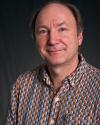|
Prof. Steve Sharpe (srsharpe@uw.edu) W F 12:30-1:50 PAA: A114 Office hour: WF 2-2:30 PAB: B406 TA: Ali Garabaglu (agarabag@uw.edu) TA Office hour: Friday, 3:30-4:30pm, C421 |
|
(The picture above is of a Higgs decay to tau-antitau from the ATLAS detector. Courtesy of CERN. http://cds.cern.ch/record/1631395)
Welcome to PHYS 557 (Winter 2023). This course is aimed at graduate students wanting to learn about the present state of particle physics--about what the standard model is, and its successes and failures. I will also emphasize learning how to calculate some simple decay rates and scattering cross sections. It should be accessible to all graduate students, not only those doing research in particle and nuclear physics.
The course does not assume knowledge of quantum field theory---my aim is for the material to be complementary to that in the QFT course, emphasizing phenomenology and calculations rather than basic formalism. We will use Feynman diagrams to do some simple calculations, but these will be introduced as a tool kit. What is assumed is knowledge of special relativity and relativistic kinematics using 4-vectors, of Lagrangian mechanics, of angular momentum in quantum mechanics, and of how symmetries are represented in quantum mechanics. The first year graduate classes provide this background. An undergraduate course in particle physics would be helpful (but not essential if you do some background reading).
An advanced undergraduate who has taken PHYS 226 and/or 422 as well as undergraduate QM, EM and Classical mechanics and is willing to do some background reading should be able to take this course. Please contact me if you are in this situation and we can arrange a meeting.
For information about texts, homeworks, exams and grading see COURSE INFORMATION (PHYS 557) (which is also on the "Pages" link).
For useful links see LINKS, for some fun images see IMAGES, and for the latest (and some older) news see NEWS (some old and some new) Please email suggestions for images, links, or news items to add.
Below is the tentative schedule, which is increasingly unreliable as the quarter progresses, since I intend to update the later material based on current experimental puzzles.
Code of Conduct (excerpted from Physics Department Code of Conduct)
``Creating a supportive environment to foster academic and scientific progress and ensuring that all members of the department have access to a safe working and learning environment is a collective responsibility. Should unprofessional or inappropriate actions or comments be observed or experienced, direct intervention calling attention to the problematic behavior is often the best response. If that does not feel appropriate or safe, one should contact Physics Student Services, one’s supervisor, the Physics Ombud, and/or SafeCampus to help determine and effect an appropriate response.''
As appropriate, please feel free to bring up issues with me, either in person or by email, or the department Chair.
The UW student code of conduct is here.
Religious Accommodations
Washington state law requires that UW develop a policy for accommodation of student absences or significant hardship due to reasons of faith or conscience, or for organized religious activities. The UW’s policy, including more information about how to request an accommodation, is available at Faculty Syllabus Guidelines and Resources. Accommodations must be requested within the first two weeks of this course using the Religious Accommodations request form (available here).
